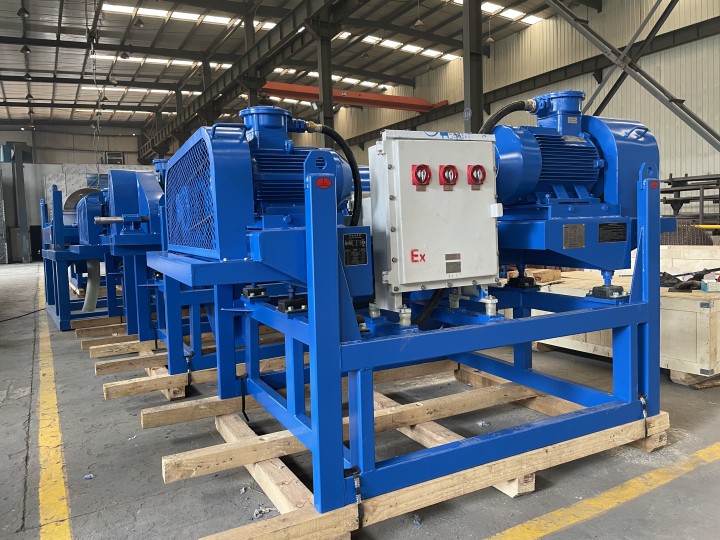Drilling activities produce a large amount of waste drilling mud, which contains various solids and impurities. Effective management of drilling waste is critical to ensuring environmental protection and compliance with regulatory standards. This is where a decanter centrifuge comes into play.
A decanter centrifuge is a highly efficient device used to separate solids from liquids. It uses centrifugal force to accelerate the settling process, so as to realize the separation of materials with different densities. In the context of drilling waste mud, decanters play a key role in the treatment and efficient management of this waste.
So, how does the decanter centrifuge process the drilling waste mud? Let’s dig a little deeper.
First, waste drilling mud is collected from the drilling site and transported to a dedicated treatment facility. The facility is equipped with one or more decanters, depending on the volume and type of drilling waste being processed.
Then the drilling waste mud is sent to the decanter centrifuge through the inlet. Inside the centrifuge, the slurry passes through a series of stages designed to separate solids from liquids. The main components of a decanter centrifuge include the bowl, conveyor, and drive system.
Initially, drilling waste mud is introduced into the drum. As the drum rotates, centrifugal force pushes the denser solids against the drum walls, while the lighter liquid phase moves toward the center. This separation is facilitated by the density difference between the solid particles present in the slurry and liquid phases.
The conveyor is an integral part of the decanter centrifuge that continuously removes the separated solids from the bowl. The speed of the conveyor can be adjusted to control the dryness of the discharged solids. This flexibility allows customization to the specific requirements of the drilling waste being processed.
At the same time, the liquid phase moves toward the center of the bowl and exits through the outlet. The separated liquid is usually further processed or treated to achieve the required quality standard before it can be safely discharged or reused.
Decanter centrifuges have several advantages in treating drilling waste mud. First, they provide efficient separation, allowing the removal of large quantities of solids from the liquid phase. This not only reduces the amount of drilling waste but also improves the overall efficiency of the waste management operation.
Additionally, decanter centrifuges are versatile and can handle a wide variety of drilling waste mud compositions. They can effectively separate different types of solids, including fine particles, from various drilling fluid systems. This adaptability makes the decanter centrifuge suitable for processing waste drilling mud, regardless of its complexity or variability.
Furthermore, the continuous operation of the decanter centrifuge ensures high throughput and minimal downtime. This function is especially important in waste drilling mud handling as it enables timely and efficient waste management operations.
In conclusion, decanter centrifuges have revolutionized the way drilling waste mud is handled. Their ability to effectively separate solids and liquids makes them an essential part of waste management systems. By harnessing centrifugal force, decanter centrifuges are efficient, versatile, and continuous in processing waste drilling mud. These machines help ensure environmental protection and compliance with regulatory standards for the drilling industry.
Tags: decanter centrifuges, drilling waste mud treatment
Related Product:https://www.kosun.com/products/KOSUN-DC-Series-Decanter-Centrifuge/dc-series-decanter-centrifuge.html

